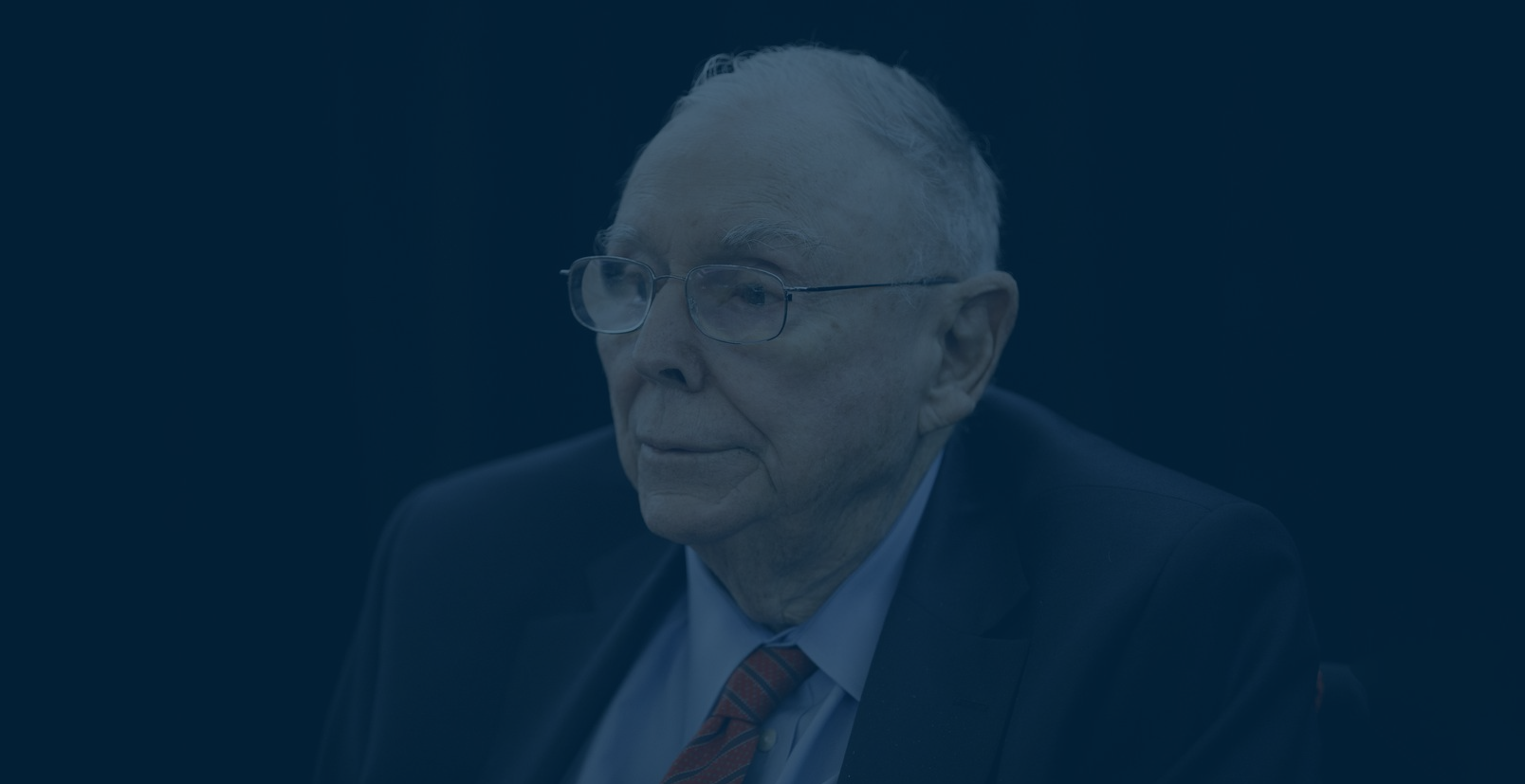
By JAMES SPENCE
“The big money is not in the buying and the selling, but in the waiting”
The closest I got to Charlie Munger was 152 yards. Some years ago, I was taken out by a member to play Los Angeles Country Club’s South golf course. I was teeing up my ball on the par 3 17th and my host stopped me “Don’t hit James, you’re going to kill Charlie Munger!” Mr. Munger was finishing off on the green, so I then stepped back so he could get out of harm’s way. He waved at me and I waved back. Fortunately, for the shareholders of Berkshire Hathaway and the wider world of investment, he survived this piece is my contribution to the memory of his 60 plus years career as an investor.
Munger’s broad thinking about investment has influenced the philosophy that underpins the Cerno Global Leaders Strategy. He has been a rich topic of study throughout his career. One of his principal ideas is the simple maxim of holding good and great companies for the long term. It is the nature of the human brain to dwell more on the buying and the selling, noteworthy events but it is the holding of positions that conveys the return. This is, to our event driven brains, more prosaic. Uneventful, in fact. Holding positions is perhaps a bit more difficult than it looks at first glance. Like life, there are plenty of vicissitudes along the way, divisions that don’t deliver, results that are temporarily shy of forecasts, CEOs that come and go. Reporting windows often have volatility around them and the sell-side firms who dominate coverage of listed companies make their money when clients buy and sell.
For all of his time at Berkshire, Munger played second fiddle to Warren Buffet, and this was a very happy arrangement for both of them. Buffet lived in a house he bought in 1958 in Omaha. Munger, also born in Omaha, worked as a youth in Buffet’s grandfathers grocery store. When the US army sent him to study meteorology at Cal Tech in Pasadena, California more or less became his base and certainly full-time since 1962. Munger had trained and practiced as a lawyer after World War II and ran an investment partnership along side his lawyering before devoting himself fulltime to investing from 1975 when he became a director of Berkshire.
Buffet credits Munger with having changed his approach to buying companies. For the first few decades of Buffet’s investment career, working in the thrall of Benjamin Graham who advanced strong theories about value management, he bought cheap companies, sometimes the cheapness could be measured against price to cash or price to book but other times it was on the basis of low nominal value prices. Buffet referred to some of these stocks as “cigar butts” that could offer a few puffs before expiry. Munger advanced a modified approach of buying good companies with defensible economic moats and seeking reasonable prices for these. More on less, that is what they have done within Berkshire since.
Munger’s contribution has become better known in recent years, partially on account of wider YouTube viewings of their double act at the annual shareholders’ meeting in Omaha. For whilst it was always Buffet that did most of the speaking, it is Munger’s interjections that create the theatre. You sense, as does Buffet, they are coming but not exactly when or their nature. His ancedotes are choice, his put-downs memorable and his common sense peerless.
There are many distinctive aspects of Munger as an investor and these have been accrued over a long-time span. It is hard to rank them, but here are the ones that have stood out to me. In no particular order:-
Reading habits. Munger was a voracious reader, joking once that his grandchildren perceived him as “a book with legs on”. He was particularly interested in biographies, I think because, in these, you can marry the person with events and consequences. What did somebody do, given what they knew at the time and how did it pan out?
Interpersonal relations. His crusty edge became an asset but he, like Buffet, clearly cared about people and maintained a distinctly ethical viewpoint. “The best thing a human being can do is help another human being know more”. When he and Buffet retreated from their bank holdings, about which Munger was ambivalent, he said something along the lines of “they’re not our type of people Warren”.
Decision making systems/systems of thought. He developed his own views about how decisions are made and the psychological and emotional underpinnings of these. He was a keen student about ways of thinking, referring to “latticework” as his physical analogy for the myriad ways in which facts intersect with thoughts and the causal underpinnings of decision structures. Most importantly, he was committed to learning. ”You must know the big ideas in the big disciplines, and use them routinely – all of them, not just a few”. “People calculate too much and think too little.”
Keeping things simple. Munger returned to this thought again and again: “the reason that our ideas have not spread faster is they’re too simple”. He was anti-complexity in business and in investing. When the probabilities are conditional on other conditionals and the mental calculation becomes too complex, the line of action can very easily be lost. Part of the necessary humility that long term investors develop derives from a ready acceptance of the limits of personal knowledge. It is natural to have expectations, without them we would not rise from our beds but one should always be suspicious about, or at least not over rely, on forecasts. “Projections are put together by people who have an interest in a particular outcome, have a subconscious bias, and its apparent precision makes it fallacious.”
Waiting for the fat pitch. A sporting metaphor borrowed from baseball. The operating idea is to be patient until stock prices align and then be greedy when they do. This is perhaps the most difficult aspect to achieve consistency on.
Ownership. We should pay attention to his main investing idea: “The number one idea is to view a stock as an ownership of the business”. The portfolio application for us to ask the question. If I could own just 25-30 businesses and the stock market closed for the next 10 years, which businesses would I wish to own? That is the basic idea behind Cerno Global Leaders.
And, finally retain a sense of humour and perspective. Munger was a tremendous joke teller and his jokes always appeared to be based on real interactions: “I think the reason why we got into such idiocy in investment management” is best illustrated by a story that I tell about the guy who sold fishing tackle. I asked him, “My God, they’re purple and green. Do the fish really take these lures?” And he said, “Mister, I don’t sell to fish.”


